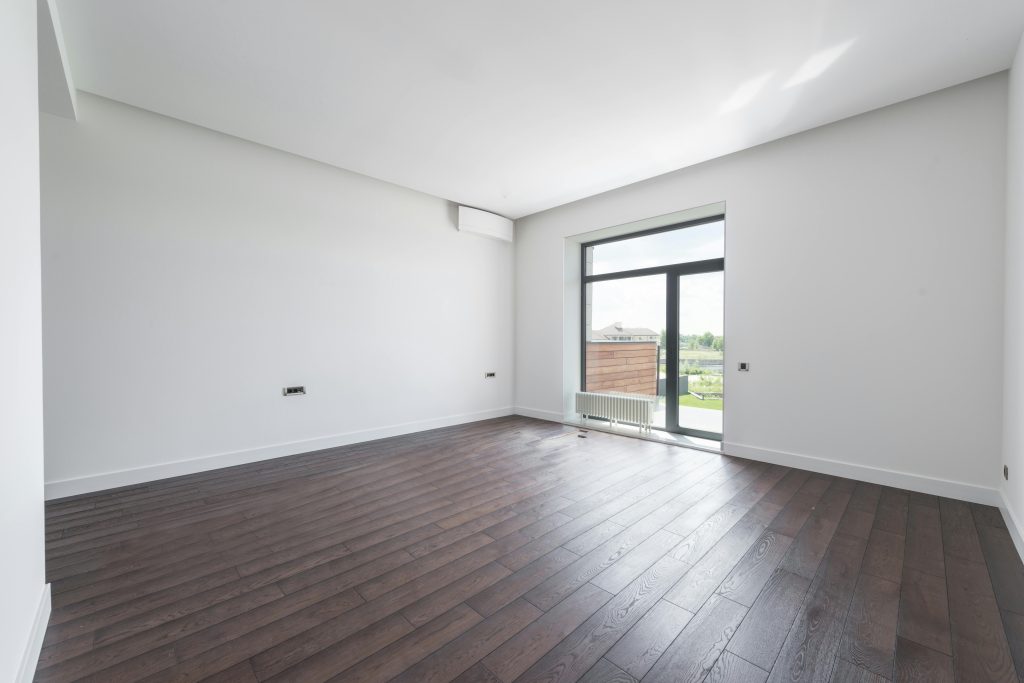Selling your house in the UK can feel like running a marathon in slow motion.
The process drags. Buyers dither. Paperwork piles up. And just when you think you’re close — boom, something else pushes things back.
Sound familiar? You’re not alone.
Roughly a quarter of property sales fall through altogether in the UK. And the ones that do go through? They still take months — sometimes over half a year.
In this guide, you’ll discover:
- The real reasons your house sale might be dragging
- The most common (and costly) hold-ups — from buyer delays to legal snags
- Practical, proven tips to shave weeks off your timeline
- How services like Property Rescue can help you skip the waiting game altogether
Let’s dive in.
The Real House Sale Timeline (Step-by-Step)
Let’s start by looking at what’s actually involved in a standard house sale in England and Wales. Because spoiler alert: it’s rarely “list, sell, done”.
Here’s a rough breakdown of what you’re dealing with:
|
Stage |
What Happens |
Typical Timeframe |
|
Preparing to List |
Choose agent, gather docs, set price |
1–2 weeks |
|
On the Market |
Viewings, offers |
~8–10 weeks |
|
Offer to Searches/Survey |
Buyer starts legal checks |
~4 weeks |
|
Mortgage Process |
Buyer applies, lender values |
~4–6 weeks |
|
Conveyancing & Enquiries |
Solicitors exchange info |
~6–12 weeks |
|
Exchange Contracts |
Sale becomes binding |
Varies |
|
Completion |
Keys handed over |
1–4 weeks after exchange |
Total time? Anywhere from 3 to 6 months, depending on how smooth things go.
And that’s assuming no hiccups.
But most sales? Not smooth.
Why Buyers Are Often the Biggest Bottleneck
Here’s the thing most sellers don’t realise upfront:
The buyer controls the pace.
In England and Wales, an accepted offer means very little legally until contracts are exchanged. That leaves buyers with plenty of time to drag their heels.
Buyer Due Diligence: The Long Road
Unlike in Scotland, buyers here aren’t tied in when they make an offer. That means they’ve got time — and they use it.
- They want surveys.
- They want searches.
- They want to check every certificate, boundary line, and building reg.
And if they find anything slightly off? More questions. More delays.
Key delay points:
- Local authority searches: These take anywhere from 2 to 6 weeks — and sometimes longer if your council’s under-resourced.
- Surveys: If your home raises red flags (damp, roof issues, cracks), buyers might order specialist surveys — dragging things out even further.
- Legal checks: Missing paperwork (like a FENSA cert for windows or proof of planning permission) almost always triggers back-and-forth with solicitors.
What You Can Do as the Seller
This stage often feels like waiting for a kettle to boil — but you’re not totally powerless.
Pro tips:
- Get all your paperwork together early. Planning permissions, guarantees, certificates — the lot.
- Fill in the seller’s forms completely. These are the Property Information Form and Fittings & Contents Form. Do not skimp.
- Choose the right buyer. First-time buyers and cash investors move faster. Chain-free = fewer delays.
Want to Skip All This?
If you’re desperate to move fast, a professional cash buyer like Property Rescue can be a game-changer.
No mortgage. No chains. No waiting for council searches to dribble in.
Bonus: We often buy within days, not months.
Mortgage Delays: The Silent Deal-Killer
Even if your buyer seems keen and offers the full asking price, don’t celebrate just yet.
Because if they’re relying on a mortgage? That’s a whole new queue to join.
Why Mortgage Applications Slow Everything Down
Most buyers aren’t paying in cash. That means they’ve got to jump through hoops with their lender — and it’s rarely a quick process.
Even buyers with a mortgage agreement in principle still have to:
- Submit a full application
- Wait for a formal valuation
- Provide stacks of documents
- Clear lender checks and conditions
This bit alone can take 4–6 weeks — or more if something goes sideways.
Real-life snags include:
- Lenders valuing your home below the agreed sale price
- Survey results triggering concerns (damp, structural issues, etc.)
- Buyers having to provide extra documentation
- Complex ownership history (e.g. bought via company or probate)
In short: mortgages can add serious lag.
What Can You Do About It?
Not much directly — you’re not the one applying for a mortgage. But you can still influence how this plays out.
Here’s how:
- Ask early: Has your buyer got their mortgage ready to go? If not, encourage the estate agent to push them.
- Stay in the loop: Make sure your agent chases the buyer for updates regularly — don’t sit silent for weeks.
- Be ready on your end: As soon as that valuation request comes in, make access easy. No delays with surveyor visits.
Fast-Track Option: Skip the Mortgage Altogether
Cash buyers don’t need mortgages. No waiting for underwriters. No back-and-forth with the bank. Just a smooth, direct sale.
That’s one reason Property Rescue can complete in under a week. With funds already in place, we don’t have to wait on any lender’s timeline.
Conveyancing: Where Time Goes to Die
Even once a buyer’s sorted, mortgage approved, and surveys done — the legal legwork can grind the whole thing to a halt.
Welcome to the world of conveyancing.
It’s the bit where solicitors on both sides exchange documents, raise enquiries, and make sure everything’s legally watertight before contracts are signed.
And it’s notoriously slow.
Why Conveyancing Takes So Long
Here’s what typically causes delays:
- Searches: Local authority, environmental and drainage searches can take weeks — especially if the council is backed up. Click here to learn more about how long searches take and why.
- Missing info: If your extension doesn’t have a completion certificate or your title plan is outdated, expect a round of enquiries.
- Back-and-forth questions: The buyer’s solicitor will want clarity on everything from shared driveways to restrictive covenants.
- Slow solicitors: Many conveyancers juggle dozens of clients — and unless you are on the ball, your sale can sit in limbo for days (or weeks) at a time.
One solicitor we spoke to admitted they “won’t complete until every box is ticked” — even if the issue is minor. That’s why this stage alone can take 6 to 12 weeks.
Here’s a detailed look at the 8 stages of the conveyancing process.
How to Stay Ahead of It
You can’t rewrite the entire legal process. But you can prevent it spiralling out of control.
Here’s what helps:
- Choose a proactive solicitor — one who answers the phone and pushes things forward.
- Send all your docs early. Warranties, planning permissions, title plans — don’t wait to be asked.
- Check in weekly. Don’t just hope things are moving. Ask your solicitor and estate agent for updates every single week.
- Use email and phone over post. Still relying on snail mail? That’s adding unnecessary days — even weeks — to your timeline.
Want to Cut Through the Legal Maze?
Here’s where cash buyers like Property Rescue shine again.
We’re experienced in quick transactions and often raise fewer legal queries — especially because we encourage the seller to use the same independent solicitors as us. Everything legal happens under one roof
Translation? You skip the usual ping-pong between two firms.
Chains: The Ultimate House-Selling Headache
If you’re stuck in a chain — you’re at the mercy of everyone else’s timeline.
What Is a Property Chain?
A chain forms when your sale depends on some other sales going through.
These can cause delays because:
- Your buyer needs to sell their property to someone else, to fund the purchase of a new property.
- Your buyer’s buyer (or their buyer’s buyer!) has delays, finance issues, or pulls out. This has a domino effect on all sales in the chain.
It’s one of the top reasons why so many UK house sales collapse.
Real-World Example
Imagine this:
You’ve found a buyer. But they’re waiting on their buyer. That person is waiting on a new-build to be finished. And that build’s delayed by six weeks.
Guess what? You’re now delayed too.
Worst-case scenario? Someone pulls out — and you’re back to square one, re-listing your home months later.
How To Minimise Chain Risks
You can’t control everyone. But you can make smarter choices.
- Favour chain-free buyers: First-time buyers, or cash investors aren’t waiting on another sale. They move quicker.
- Break your own chain: Consider selling and moving into rented or temporary housing. Yes, it’s an extra move — but it gives you flexibility and control over timing.
- Be flexible: If your buyer needs an extra week, it might be worth giving it. Keeping the chain together is often better than starting over.
We’ve previously written about how to avoid being in a chain.
The No-Chain Option
This is where quick-sale companies come in again.
Property Rescue doesn’t need to sell another property to buy yours. We are a cash buyer. No waiting. No chain drama. No 11th-hour collapse.
Just a guaranteed sale — on your terms.
Certain Properties Just Take Longer to Sell
Sometimes it’s not the buyer, the market, or even the solicitor slowing things down.
It’s the type of property you’re selling.
Let’s break down which homes are harder to shift quickly — and what you can do about it.
1. Leasehold Properties
If you’re selling a flat (or any leasehold property), expect extra paperwork. And extra delays.
Here’s why:
- Your solicitor needs to get a management pack from the freeholder or managing agent.
- That includes details about service charges, ground rent, insurance, and lease restrictions.
- The pack isn’t free — and it’s rarely fast. Some freeholders take weeks to respond.
Plus, buyers want to examine the lease with a fine-tooth comb — especially if there’s a short term left or any weird clauses.
Fast-Track Tip: As soon as you go on the market, order your leasehold pack from your freeholder. Don’t wait for a buyer.
2. New-Builds
Buying a not-yet-completed property? Your timeline depends on the builder.
Delays in construction mean delays in contracts and completion. And mortgage offers only last so long — meaning your buyer might have to reapply if things drag.
3. Unique or Older Homes
Quirky homes (think thatched cottages, converted chapels, listed buildings) are charming — but also more complex.
Expect:
- Specialist surveys
- Extra lender checks
- Legal quirks (like unregistered titles, or unusual boundaries)
All of which adds time.
4. Tenanted Properties
Selling with tenants in situ? You’ll need to:
- Show the tenancy agreement
- Prove rent history
- Give legal notice if the buyer wants vacant possession
That’s extra admin, and can hold things up. Here’s a great guide on how to sell tenanted property.
What Can You Do?
Be proactive.
Gather everything upfront — leases, tenancy docs, historic planning permissions, certificates… the lot.
If you suspect that some aspect of your property might raise questions, tackle it early.
How Third Parties Slow Everything Down
Even if your buyer’s motivated, mortgage’s sorted, and solicitors are engaged — there’s still one big hurdle left.
Coordination.
Selling a house means juggling multiple people, timelines, and touchpoints. And if just one of them stalls? It affects the whole timeline.
Who’s Actually Involved in a House Sale?
Brace yourself. A typical UK sale might include:
- You (the seller)
- Your buyer
- 2 x sets of solicitors
- Estate agent
- The buyer’s mortgage lender
- A surveyor
- Local council (for searches)
- Freeholders or managing agents (for leasehold)
- Insurers or planning departments (for certificates)
That’s a lot of moving parts.
And every one of them has their own processes, workloads, and priorities.
Where the Delays Happen
- Searches: Some councils return search results in days. Others? 6+ weeks.
- Management companies: Especially slow during December, or when chasing service charge data.
- Solicitor ping-pong: Questions raised, but no response. Or replies sent, but not actioned. It’s classic “hurry up and wait” territory.
- Lender-side solicitors: Many banks use external law firms — meaning even more people in the loop
- Busy solicitors: Some solicitors (especially the cheap ones) deal with high volumes of sales, and they have a tendency to be very slow.
Check out this guide that walks you through the full conveyancing process. Also, I recommend reading this post about choosing cheap solicitors, and how to choose a good one.
Why Communication Is Key
Half the time, it’s not the actual task that takes ages — it’s waiting for someone to reply.
That’s why staying on top of communication is one of the simplest ways to speed up a sale.
How to Speed Up Your House Sale
Now that you know why your house sale might be crawling along, let’s recap what you can actually do to speed things up:
1. Price It Right From the Start
Overpricing = more time stuck on Rightmove.
The longer your home sits, the more buyers wonder what’s wrong with it.
Top tip: Check what similar properties actually sold for in your area — not just what they were listed at. Aim for a competitive, fair price from day one.
Pricing it right from the start often boils down to the estate agent you appoint. Here’s some help on choosing a good estate agent.
2. Get Your Documents Ready Early
This is one of the biggest game-changers.
Before you even get an offer, have these to hand:
- Title deeds
- Planning permissions
- Building regulation certificates
- Warranties and guarantees (for boilers, windows, etc.)
- Property Information Form (TA6)
- Fittings & Contents Form (TA10)
Missing documents = more solicitor enquiries = more delay.
3. Instruct a Solicitor Before You Get an Offer
Don’t wait until you find a buyer to get legal things moving.
A good solicitor can:
- Open your file early
- Send out your contract pack as soon as an offer is accepted
- Flag any issues with your title or paperwork before they become a problem for the buyer.
The earlier they’re involved, the less chance of delay later.
4. Stay Proactive and Keep Chasing
Silence is not golden when you’re trying to sell a house.
- Follow up regularly with your solicitor and estate agent.
- Ask: “Is anything waiting on me?”
- Push for weekly updates — even if it’s just “no change.”
Being the squeaky wheel helps keep things moving.
5. Be Fast With Your Responses
When the buyer’s solicitor sends enquiries, don’t let them sit in your inbox.
Even a one-day delay on your end can add a week to the chain.
If you need time to get the info, at least reply and say you’re working on it.
6. Think Strategically About the Buyer
A cash buyer or chain-free first-time buyer might offer slightly less — but complete way faster.
Weigh up what matters more: the extra £5k, or being done with the sale two months earlier?
Speed often trumps top price — especially if you’ve got another property lined up.
7. Sort Out Any Known Issues Upfront
Know the roof leaks? Boiler’s ancient? Lease is short?
Don’t wait for the surveyor to flag it.
Either fix it early or disclose it honestly with quotes ready. Transparency = less negotiation delays.
8. Consider a Quick Sale Company (If You’re in a Hurry)
If you need to move fast — maybe because of a relocation, inheritance, or chain collapse — a company like Property Rescue can buy your house in as little as 48 hours.
We handle the legal work, skip the mortgage nonsense, and give you certainty in days.
Yes, you’ll likely accept a slightly lower price. But for speed and simplicity? It’s often a solid trade-off.
Take Back Control of Your House Sale
Selling your home doesn’t have to be a drawn-out nightmare.
Yes, there are moving parts you can’t control — slow solicitors, cautious buyers, mortgage faff, legal red tape. But once you understand why these delays happen, you’re in a much stronger position to prevent or reduce them.
And if time is critical? There’s always a faster way.
Whether you prep your documents early, choose a buyer more carefully, or opt for a professional cash buyer like Property Rescue, there are real, practical ways to fast-track your sale.
At the end of the day, the power to speed things up is mostly in your hands.









